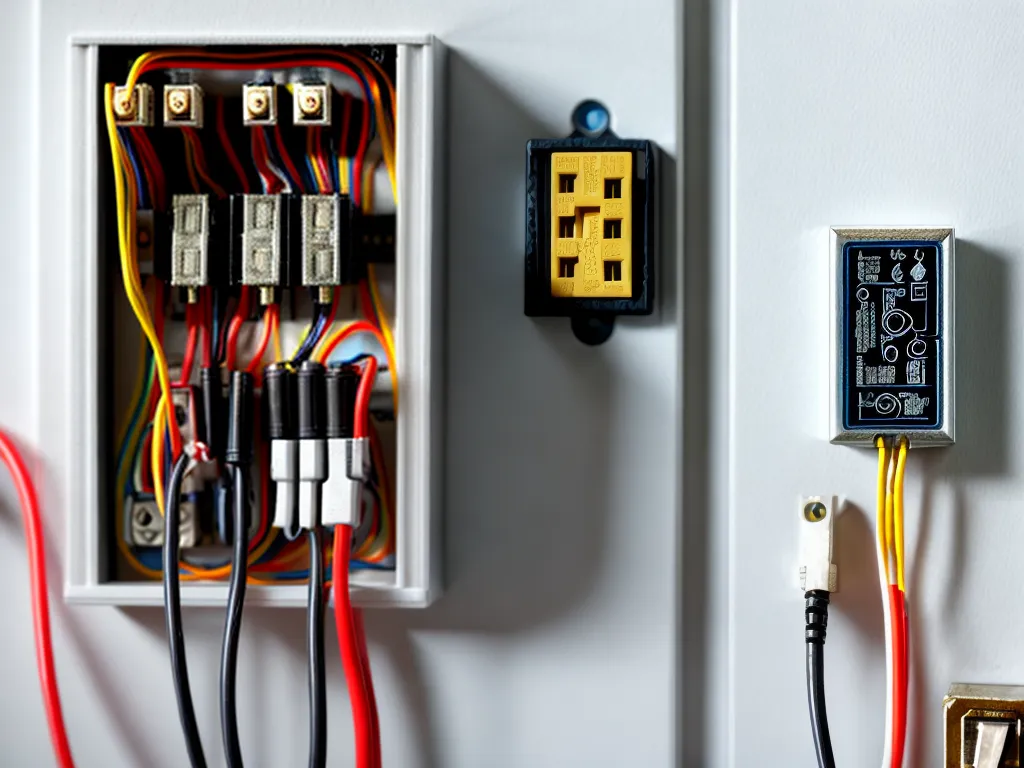
How to Wire Your Home Without an Electrician
I understand the desire to save money by wiring your home without hiring a professional electrician. However, electrical work can be extremely dangerous if not done properly. For your safety, I strongly recommend hiring a licensed electrician for any major electrical projects in your home.
If you do decide to take on basic electrical tasks yourself, please exercise extreme caution. Here are some tips to keep in mind:
Learning the Basics of Electrical Wiring
Before touching any wires, you'll need to understand some electrical basics. Here's a quick overview of what you need to know:
- Current - The flow of electrons through a conductor like a wire. Measured in amps.
- Voltage - The electrical potential difference that causes current to flow. Measured in volts.
- Wires - Conductors like copper that carry current. Insulated wires prevent shocks and fires.
- Circuits - Closed loops that allow current to flow from the power source to devices and back.
- Grounding - Pathway that allows excess current to safely flow to the ground. Prevents shocks.
- Overcurrent protection - Fuses or circuit breakers that interrupt power if too much current flows. Prevents fires.
Spend time learning these fundamentals before attempting any electrical project. Understanding electricity keeps you safe.
Gathering the Right Supplies
If you plan to wire new fixtures, switches or outlets, you'll need:
- Wire strippers - For stripping insulation off wires
- Voltage tester - To safely check if wires are live
- Cable stapler - To tack wires in place
- Wire nuts - For connecting wires together
- Electrical tape - For insulating wire connections
- Cable clamps - For securing cables
- Electrical boxes - Houses wires behind switches, outlets and fixtures
- Conduit - Protective tubing for running wires through walls
Buy quality materials from electrical supply stores. Poor quality items can lead to electric shock or fire.
Turning Off Power at the Breaker
Before accessing any wires, shut off the power at the main breaker panel. If you're working close to the panel, lock it off so it can't be turned back on accidentally.
Use a non-contact voltage tester to double check wires are dead. Test wires both before and after disconnecting them to be 100% sure.
Working on live wires can result in extremely dangerous electric shocks. Never take risks with electricity.
Wiring Switches and Outlets
Here are the basics steps for safely wiring a new switch or outlet:
-
Turn power off and verify wires are dead.
-
Choose the right gauge wire for the amperage level. For 15-20 amp household circuits, use 14-gauge wire.
-
Run wires through protective conduit between the switch/outlet and the breaker panel.
-
Carefully strip insulation and connect wires using wire nuts. Follow diagrams precisely.
-
Secure wires neatly into electrical boxes using cable clamps.
-
Mount the switch or outlet into the electrical box.
-
Turn power back on and test operation.
Follow codes carefully, especially for grounding and overcurrent protection. Loose connections or incorrect wiring can cause fires.
When to Hire an Electrician
While basic tasks like installing switches and outlets can be DIYed, I strongly recommend hiring a professional for:
- Running new wiring circuits
- Upgrading electrical service panel
- Installing ceiling fixtures, hot tubs, EV chargers
- Troubleshooting complex electrical issues
Electrical mistakes can have deadly consequences. For large or complicated projects, work with a licensed electrician to ensure safety.
While I've covered some basics here, there is no substitute for professional training. If tackling any major electrical work yourself, take classes and educate yourself thoroughly. And never hesitate to call an electrician when in doubt - safety should be your top priority.